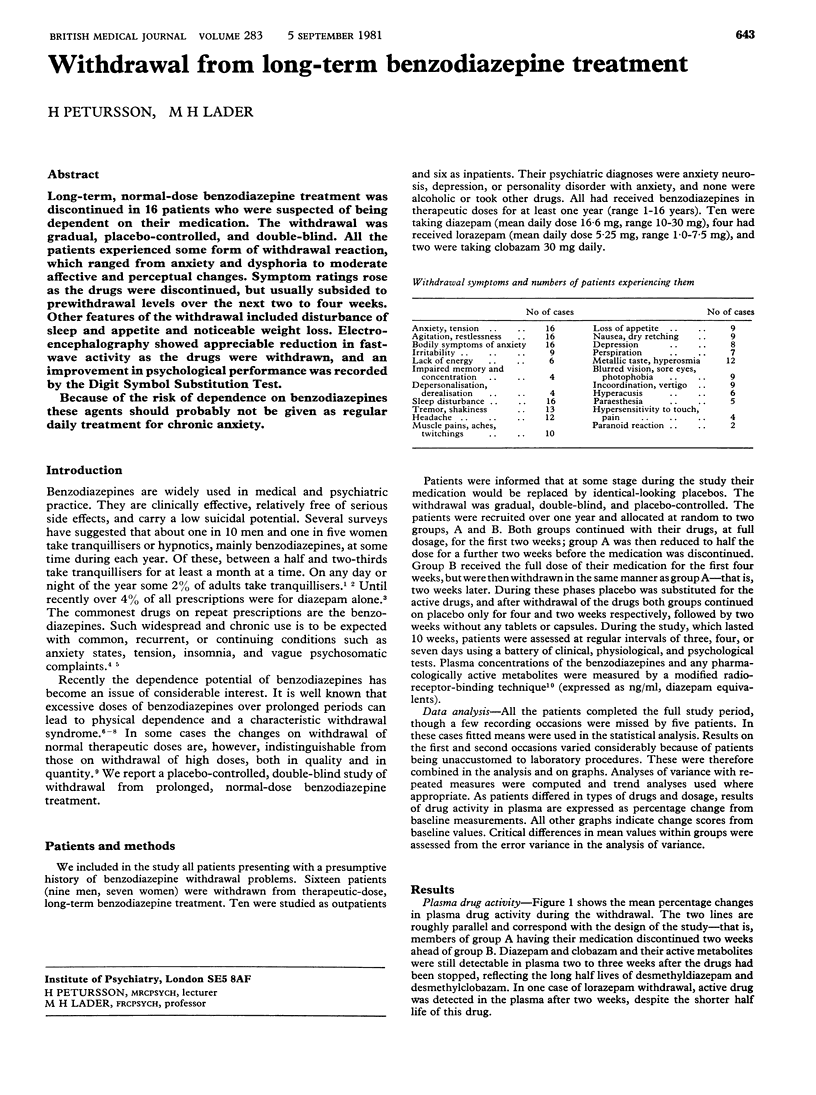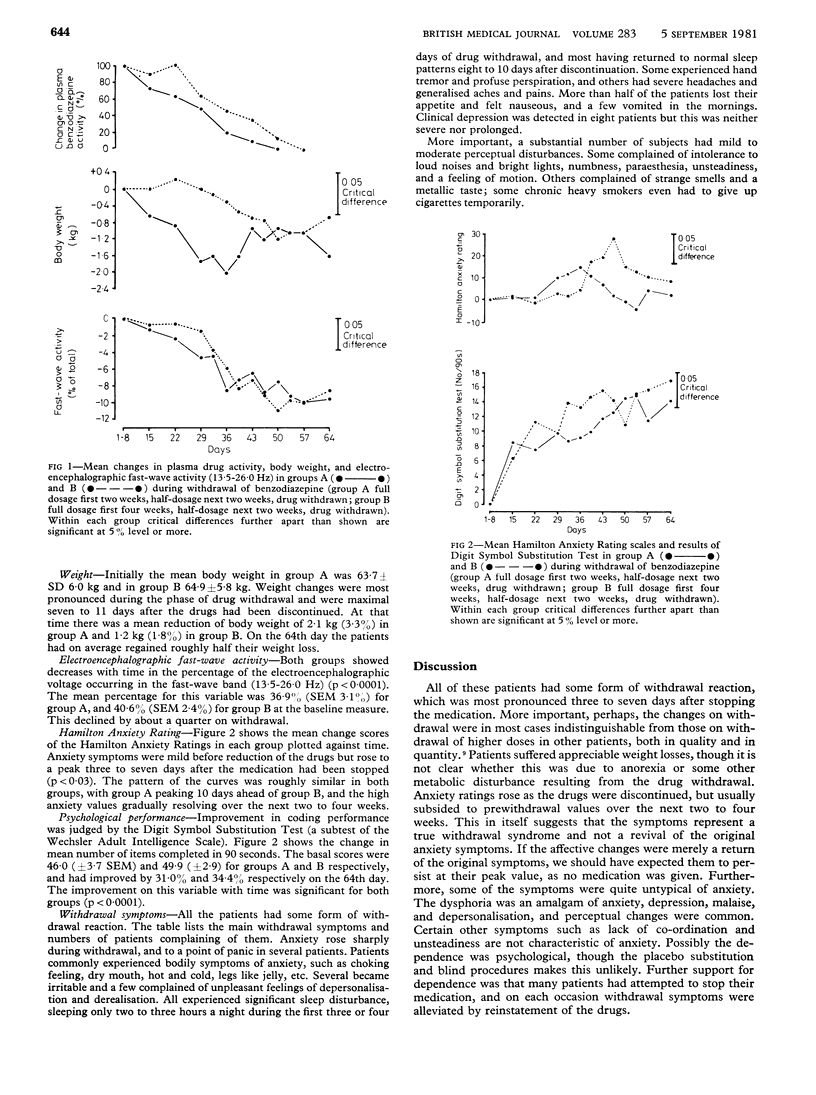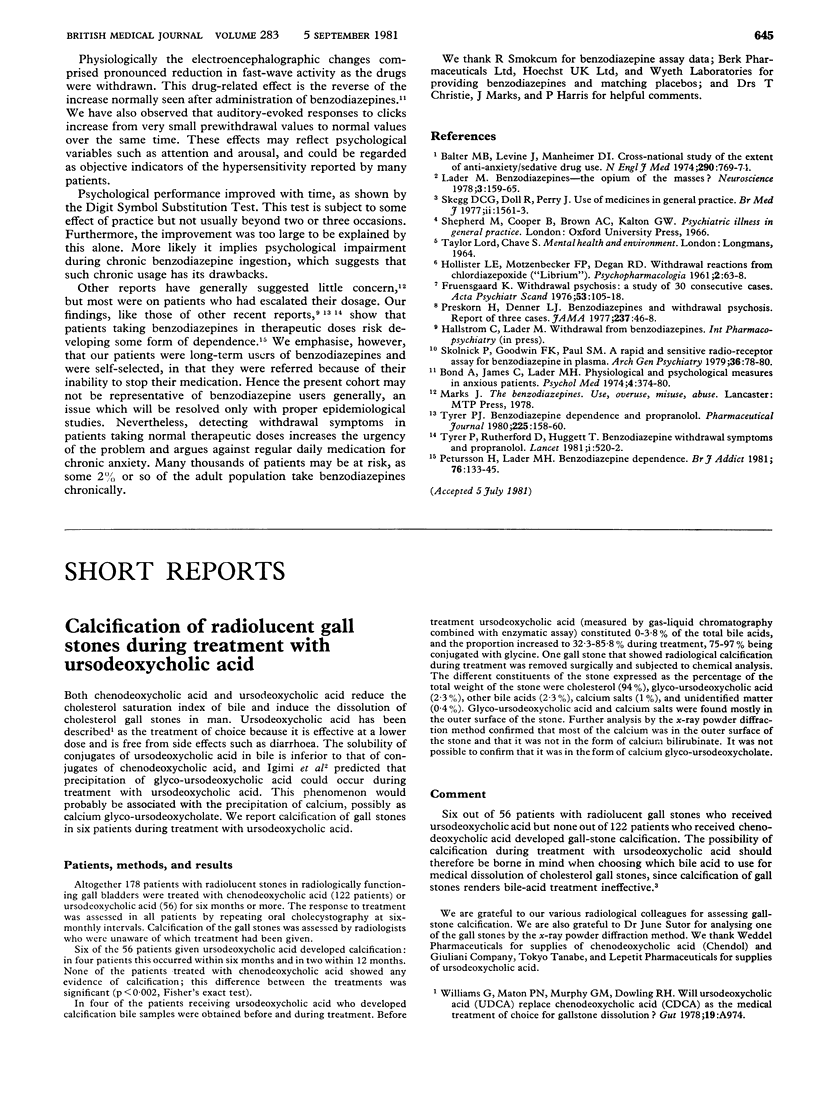Abstract
Long-term, normal-dose benzodiazepine treatment was discontinued in 16 patients who were suspected of being dependent on their medication. The withdrawal was gradual, placebo-controlled, and double-blind. All the patients experienced some form of withdrawal reaction, which ranged from anxiety and dysphoria to moderate affective and perceptual changes. Symptom ratings rose as the drugs were discontinued, but usually subsided to prewithdrawal levels over the next two to four weeks. Other features of the withdrawal included disturbance of sleep and appetite and noticeable weight loss. Electroencephalography showed appreciable reduction in fast-wave activity as the drugs were withdrawn, and an improvement in psychological performance was recorded by the Digit Symbol Substitution Test. Because of the risk of dependence on benzodiazepines these agents should probably not be given as regular daily treatment for chronic anxiety.
Full text
PDF


Selected References
These references are in PubMed. This may not be the complete list of references from this article.
- Balter M. B., Levine J., Manheimer D. I. Cross-national study of the extent of anti-anxiety-sedative drug use. N Engl J Med. 1974 Apr 4;290(14):769–774. doi: 10.1056/NEJM197404042901404. [DOI] [PubMed] [Google Scholar]
- Bond A. J., James D. C., Lader M. H. Sedative effects on physiological and psychological measures in anxious patients. Psychol Med. 1974 Nov;4(4):374–380. doi: 10.1017/s0033291700045815. [DOI] [PubMed] [Google Scholar]
- Fruensgaard K. Withdrawal psychosis: a study of 30 consecutive cases. Acta Psychiatr Scand. 1976 Feb;53(2):105–118. doi: 10.1111/j.1600-0447.1976.tb00065.x. [DOI] [PubMed] [Google Scholar]
- HOLLISTER L. E., MOTZENBECKER F. P., DEGAN R. O. Withdrawal reactions from chlordiazepoxide ("Librium"). Psychopharmacologia. 1961 Feb 20;2:63–68. doi: 10.1007/BF00429621. [DOI] [PubMed] [Google Scholar]
- Lader M. Benzodiazepines--the opium of the masses? Neuroscience. 1978;3(2):159–165. doi: 10.1016/0306-4522(78)90098-2. [DOI] [PubMed] [Google Scholar]
- Petursson H., Lader M. H. Benzodiazepine dependence. Br J Addict. 1981;76(2):133–145. doi: 10.1111/j.1360-0443.1981.tb00218.x. [DOI] [PubMed] [Google Scholar]
- Skegg D. C., Doll R., Perry J. Use of medicines in general practice. Br Med J. 1977 Jun 18;1(6076):1561–1563. doi: 10.1136/bmj.1.6076.1561. [DOI] [PMC free article] [PubMed] [Google Scholar]
- Skolnick P., Goodwin F. K., Paul S. M. A rapid and sensitive radioreceptor assay for benzodiazepine in plasma. Arch Gen Psychiatry. 1979 Jan;36(1):78–80. doi: 10.1001/archpsyc.1979.01780010084009. [DOI] [PubMed] [Google Scholar]
- Tyrer P., Rutherford D., Huggett T. Benzodiazepine withdrawal symptoms and propranolol. Lancet. 1981 Mar 7;1(8219):520–522. doi: 10.1016/s0140-6736(81)92861-0. [DOI] [PubMed] [Google Scholar]


